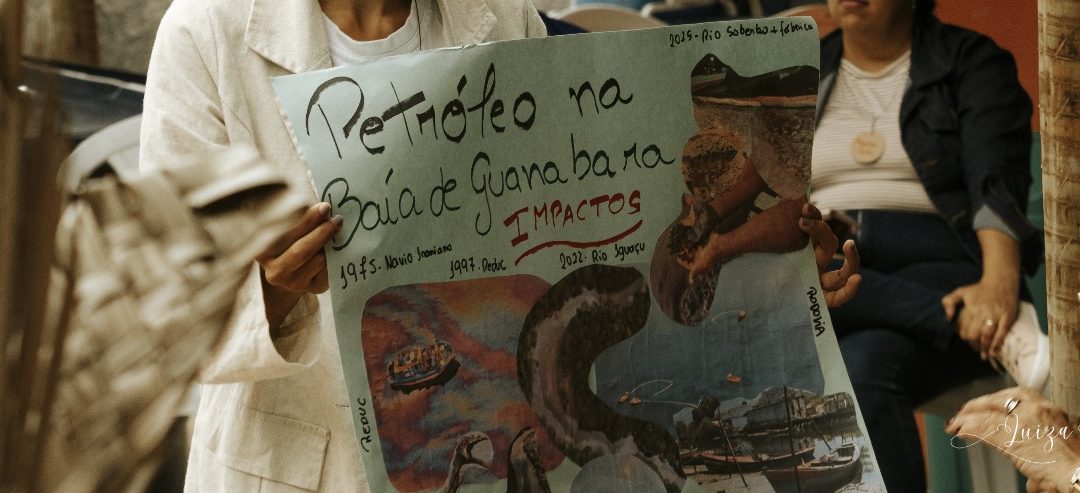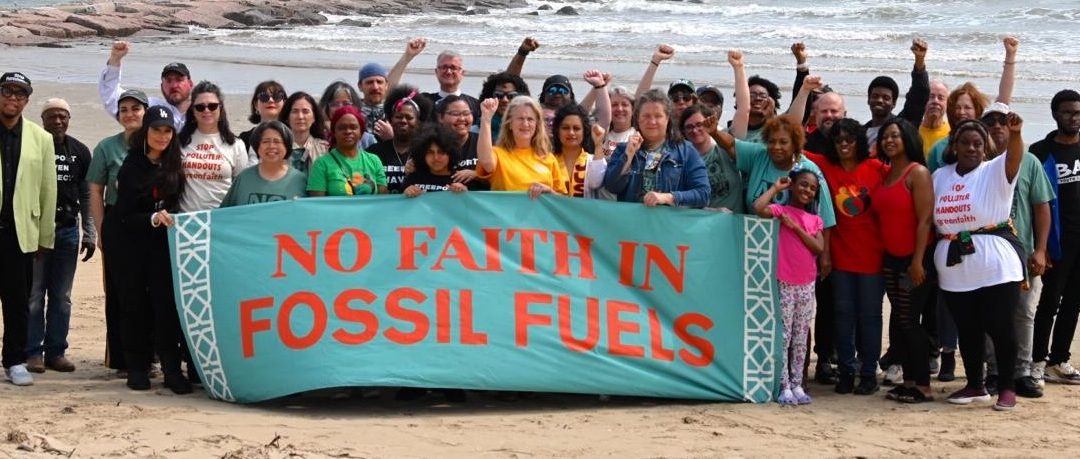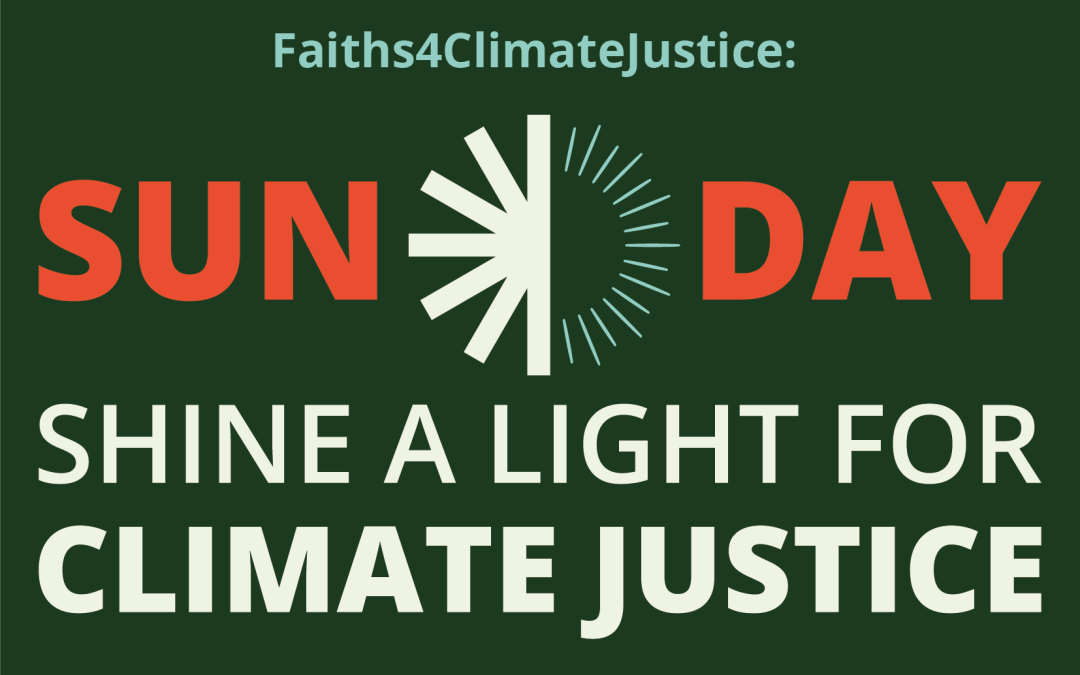Moral Voices for Climate Justice in the Wilderness of COP28
Past COPs and the Paris Agreement itself have focused on country pledges – unenforceable and voluntary – to reduce their own emissions. GreenFaith and others have long noted that this creates a blind spot, diverting the negotiations’ focus away from the only thing that will prevent catastrophic climate impacts: phasing out fossil fuels.
This COP, the elephant in the room has come into clear view.
COP28 has been hosted by the United Arab Emirates, a country whose economy relies on fossil fuel production. The COP Presidency is held by the CEO of the national oil company, who has used his position to negotiate oil and gas deals while openly ridiculing the idea of a fossil fuel phaseout.
2,456 fossil fuel industry lobbyists are present at COP28. These lobbyists have received more passes to attend than all the delegates from the ten most climate-vulnerable nations combined.
These alarming facts raise fundamental questions about justice, representation, and the path to a sustainable future. The sheer number of these lobbyists, representing powerful corporations from the Global North and oil-producing states, amplifies the disproportionate influence of these polluters on climate negotiations.
This disparity is a disservice to the global community. It raises concerns about the ability of those most affected by climate change to have their voices heard and their needs addressed. How can we expect meaningful solutions when the perpetrators of environmental degradation outnumber and overshadow the voices of those suffering climate change’s impacts?
These dynamics have come into sharp relief in relation to the East Africa Crude Oil Pipeline (EACOP). GreenFaith and others have campaigned to stop this destructive carbon bomb which is slated to pass through Uganda and Tanzania, with the two governments’ full approval. The project, spearheaded by the French multinational TotalEnergies, would displace 100,000 local residents, spew toxic contamination, threaten drinking water for three million people, and generate more greenhouse gas emissions than the combined carbon footprints of the two host countries. It is exactly the kind of project that should not be happening now.
In November, GreenFaith published “As If Nothing Is Sacred,” a report that laid bare one dimension of EACOP’s destructive consequences. We found that Total was routinely disturbing or desecrating local graves during preparation for construction. This has been devastating for local communities. The trauma inflicted upon these families, who have seen their ancestral resting places violated, is immeasurable.
Soon after, Global Witness published the results of an investigation that uncovered Total’s routine intimidation of local pipeline opponents. In several cases, Total communicated with Ugandan authorities about violating the civil and human rights of EACOP protestors. Campaigners were threatened and detained while Total downplayed its abuses and gaslit human rights defenders. As I write this, seven Ugandan students are detained in a maximum security prison for merely petitioning their Parliament to reconsider EACOP.
While communities are being impoverished and brutalized for EACOP, TotalEnergies posted a record net adjusted profit of US$36.2 billion in 2022.
These innocent local communities and courageous activists are part of the larger Global South community. Their stories are uniquely important. They, and local communities around the globe, face grave danger from the fossil fuel industry.
They are hoping COP28 can deliver a clear roadmap to end the fossil fuel era. But how can they be heard and their needs addressed when their voices are drowned out by thousands of fossil fuel lobbyists?
Let us be clear: without a rapid global transition away from fossil extraction and development, the burden on vulnerable communities will only continue through increasingly severe climate impacts and through the intimidation, coercion, and cultural disruption that the fossil fuel industry creates.
Our spiritual texts compel prudent environmental stewardship. At COP28 we made it clear that GreenFaith steadfastly opposes the maximization of profits over people and planet. We reissued our call for a fair phase-out of fossil fuels and renewed our support for the Fossil Fuel Non-Proliferation Treaty. We invite people of all faiths to sign this letter in support of such a Treaty.
Justice demands change. At COP and beyond, GreenFaith will continue mobilizing people of diverse faiths for climate justice. This is our Scriptural duty. The climate crisis compels nothing less. We invite all people of conscience to join us.




